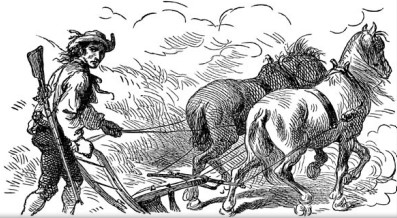In the late 1760s, a group of North Carolina farmers banded together to petition their locally elected legislators for reforms. Having suffered injustices of
over-taxation, extortion in clerical fees, and oppression, they lost their homes and land. They also objected to the Stamp Act and Townshend Acts, enforced by Governor William Tryon and the colonial legislature. Despite these grievances, the Regulators did not oppose the authority of the King but opposed the practices of the locally elected legislature. While this is clearly a form of resistance, is it revolutionary? In this lesson, students will analyze the grievances of the Regulators and learn how the government redressed their concerns.
Part of a series
Revolutionary Ideals
Support the teaching and learning of history
Your support of National History Day is an investment in the future
Judges needed
Judges make the NHD contest possible. See how you can provide students a high-quality educational experience




